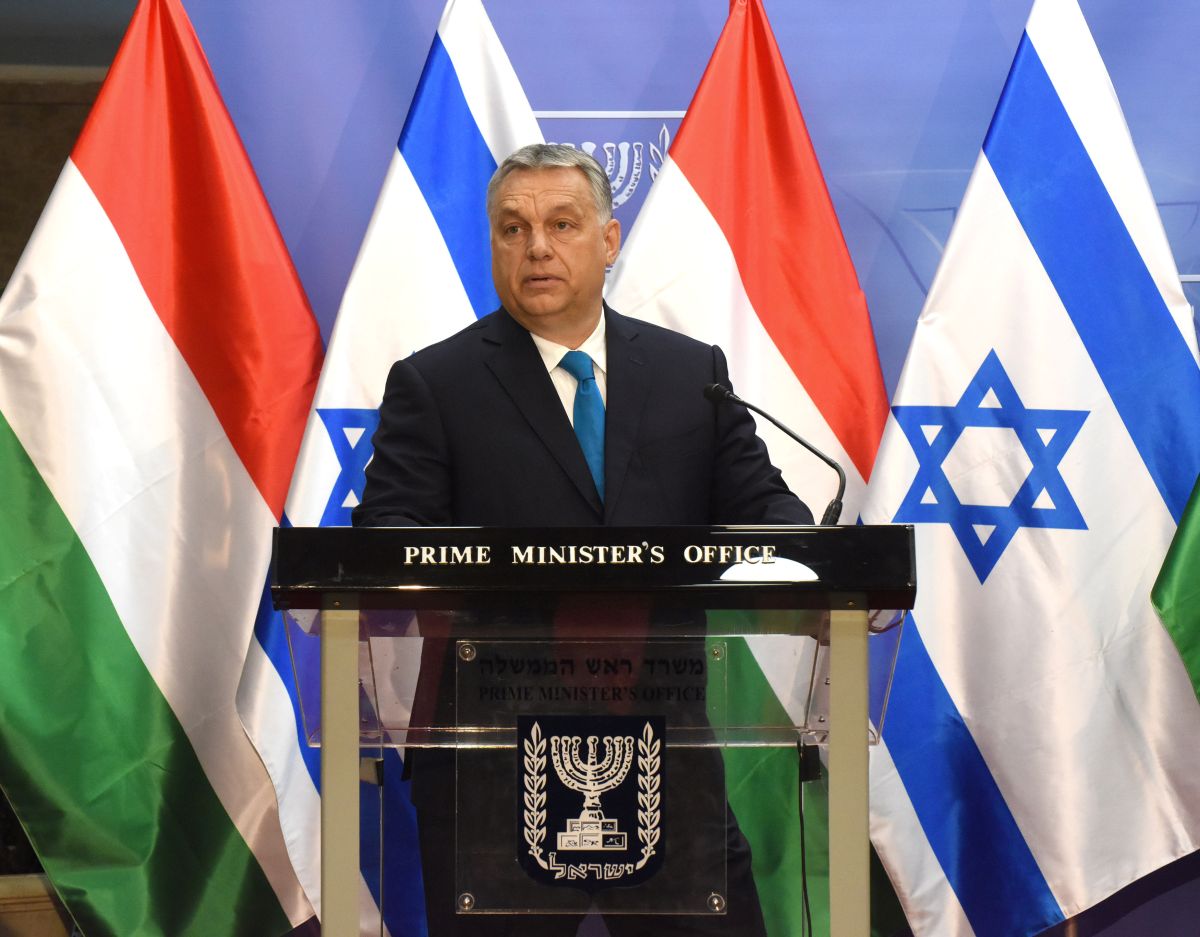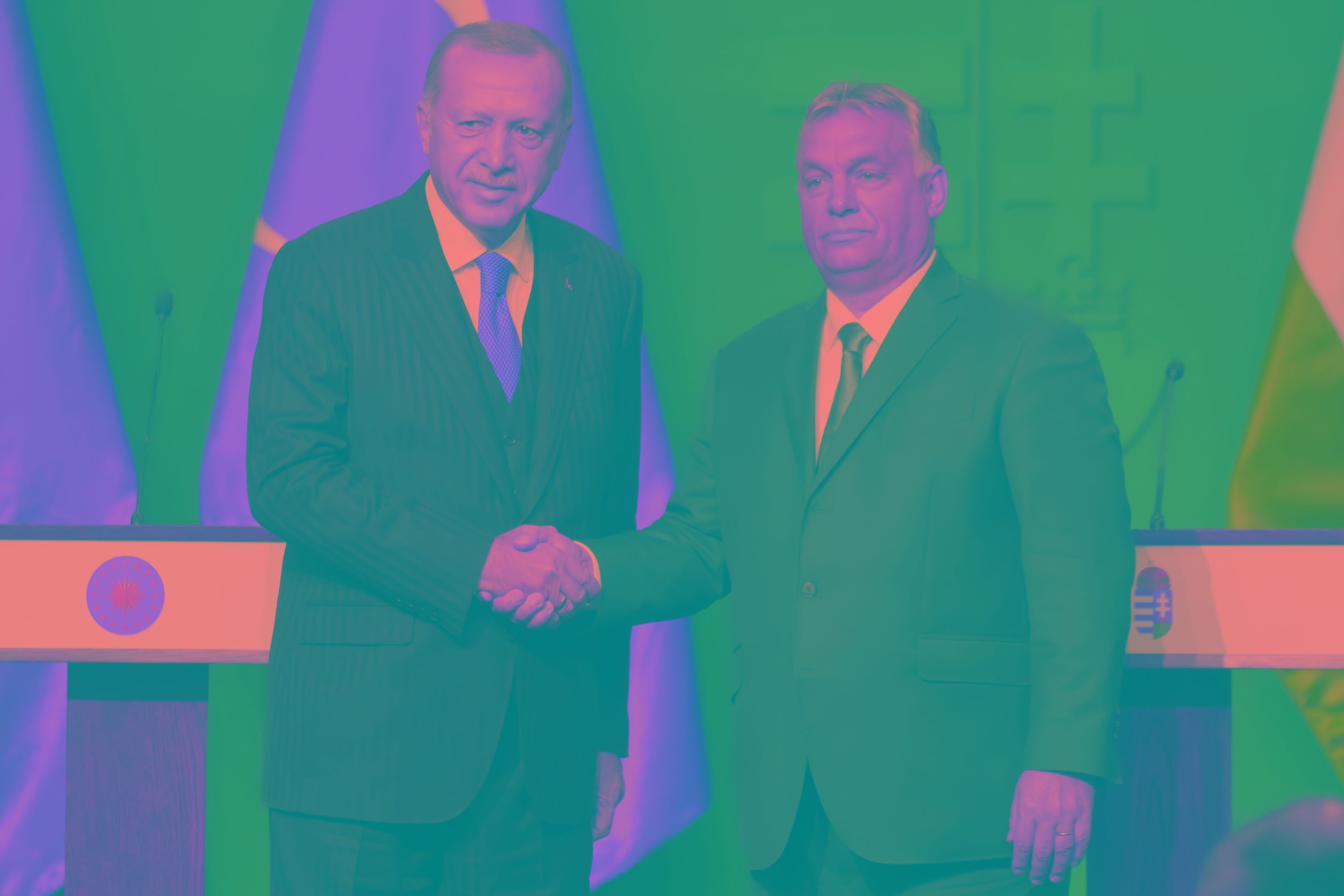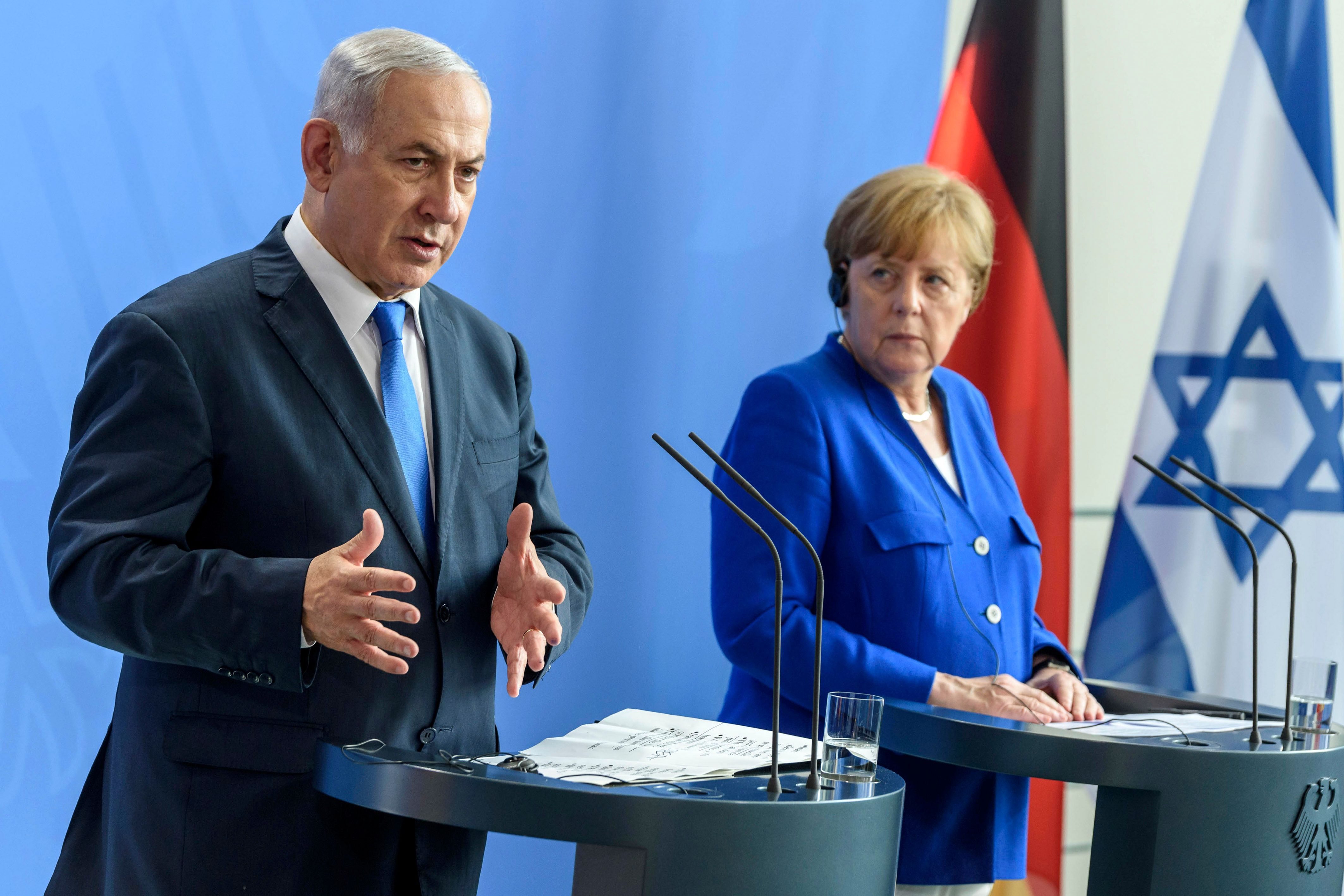The Specificity of Hungarian-Israeli Relations
Hungary under Viktor Orbán’s premiership has become one of Israel’s most important European partners. This is reflected in the diplomatic support for Israel by Hungary, mainly at the EU level. Close relations with Israel serve Hungary’s foreign and domestic policy goals and at the same time weaken the effectiveness of the EU’s Middle East policy. However, the new Israeli government may be less open to political cooperation with this country because of earlier criticism of Hungary on, for example, historical issues.
 Fot. POOL/Reuters
Fot. POOL/Reuters
Goals
Initially, Hungary’s improvement of relations with Israel served primarily image purposes. Accusations of anti-Semitism and the use of the language of the extreme right were political burdens for the Orbán government in its first term (1998–2002) and resulted in, among others, U.S. diplomatic intervention. After Fidesz returned to power in 2010, it tightened relations with Benjamin Netanyahu and Likud (ruling since 2009 and ideologically related) to gain a counter to the allegations of anti-Semitism. Since then, the Hungarian authorities have directed such accusations towards critics of Israel in Europe and their own political rivals, including the once extremist, now more mainstream right-wing Jobbik party.
Israel has become an attractive foreign policy partner for Hungary, as demonstrated by the 2015 migration-management crisis. Israel’s approach to mass migration from Africa in 2006-2012 (e.g., building a wall on the border with Egypt, obstructing the legalisation of migrants’ stay, portraying them as a national security threat) became a point of reference for the Hungarian government, which took similar, radical measures. The building of a common political platform was also facilitated by the Hungarian government’s disputes with the EU institutions and their critical attitude to Israeli policy. Moreover, through relations with Israel, Hungary is looking for diplomatic support in relations with the U.S, also by forging ties with American Jewish organisations.
From Israel’s perspective, the strengthening of cooperation with Hungary was a step to gain a favourable ally within the EU. The Likud government’s goal was to counterbalance criticism from Western European states (related to Israeli policy towards the Palestinians) with closer political dialogue with partners in Central Europe. Israel wanted their support in matters concerning it at the EU level (mainly issues regarding the conflict with Palestinians) and to develop bilateral, sectoral cooperation with countries with similar potential.
Bilateral and Multilateral Relations
Bilateral relations were tightened after 2015 due to the political context created by the migration-management crisis, strengthening of the right-wing character of Netanyahu’s cabinet after the elections and appointment of Péter Szijjártó as the minister of foreign affairs of Hungary. These factors enabled in 2017 the first visit of the Israeli PM to Hungary since the political transformation after 1989. Orbán visited Israel three times between 2018 and 2021, and Szijjártó also made several visits.
Hungary is committed to developing economic relations with Israel. Hungarian financial support for investors from the high-tech sector may have contributed to a faster increase in the cumulative value of Israeli FDI in Hungary after 2017, although it amounted to only €535 million in 2019 (less than 1% of foreign capital stock in Hungary). The Hungarian government has also expressed interest in purchasing Israeli gas and weapons and in technological cooperation. However, trade exchange remains insignificant and has practically not increased in recent years—in 2020 it amounted to about €500 million (with a surplus of €120 million on the Hungarian side).
During Fidesz’s rule, Hungary clearly sided with Israel in its conflict with the Palestinians; for example, it was one of the few EU countries to officially endorse the Trump peace plan that favoured Israel. Hungary’s policy—often shared, among others, by Czechia, Austria, and Romania—led to vetoing common EU positions on Israel and Palestine. This concerned, for example, blocking, together with Czechia and Romania, an EU statement critical of the U.S. embassy’s transfer to Jerusalem in 2017, a joint position on the announced annexation of Jewish settlements in the West Bank in 2020, or a declaration on the Israeli-Palestinian escalation in May. Although Hungary did not openly oppose the EU consensus on the status of the Golan Heights or Jerusalem, it decided, like other V4 countries (except Poland), to increase its diplomatic presence in this city by opening a trade office. It also refuses to mark the origin of products from Jewish settlements in areas occupied by Israel despite a ruling by the Court of Justice of the EU, and criticises the investigation by the International Criminal Court of the situation in the Palestinian territories. To develop contacts with Israel, Hungary also uses other diplomatic tools, such as the V4+Israel format, which it initiated in 2017, or the offer of mediation in the Israeli-Turkish dispute.
Approach to the Politics of History
For Israel, one of the most important factors in assessing partnerships with European countries is their historical memory policy regarding WW2 and the Holocaust, as well as their approach to the Jewish community and the problem of anti-Semitism. Orbán’s government promotes a message that the state “failed to defend its citizens”, thus attempting to conceal the active participation of the Hungarian authorities in the deportation of 440,000 Hungarians of Jewish origin to the German Nazi death camps, as well as the responsibility of regent Miklós Horthy, then the de facto head of state, who is rather positively presented in the government discourse.
The Hungarian government’s approach to anti-Semitism is similarly contradictory. At the declarative level, the authorities do not tolerate its manifestation and emphasise that they care for the security of the Hungarian Jewish community, the largest in Central Europe (about 100,000). The government has allocated significant resources to support and maintain Jewish cultural heritage (including $6 million annually for the three largest Jewish organisations). Nevertheless, polls show a deepening of anti-Semitism in the Hungarian public space, visible as hate speech and in conspiracy theories. This may be the result of the government distinguishing people with anti-Semitic views, for example, in the form of state decorations or high positions, but may also be connected to anti-Semitic stereotypes used in the election campaign in 2018. The face of it was George Soros, the American financier of Hungarian-Jewish origin, who was presented by the government as Hungary’s enemy and someone who overly influences decisions in the EU. Initial criticism of the campaign by Israeli diplomacy was softened after intervention by Netanyahu, who is also hostile to Soros. In Israel, the Likud government’s policy towards Hungary generated criticism from the then centre-left opposition. One of its leaders—now minister of foreign affairs—Yair Lapid (a descendant of Hungarian Jews), has repeatedly criticised Netanyahu for his contacts with Orbán, accepting historical relativism, and ignoring criticism from part of the Jewish diaspora in Hungary.
Conclusions and Perspectives
Their difficult shared history has not prevented the establishment of good relations between Hungary and Israel, as the priority of the respective parties has remained to support their current political interests. For the Fidesz government, sensitive to the accusations of anti-Semitism, continuing cooperation at the current level will remain a priority. From the perspective of the new Israeli government led by Naftali Bennett, the position towards Hungary may generate disputes within the cabinet. On the one hand, maintaining Hungarian support at the EU level is very beneficial for Israel. On the other hand, some government members strive to implement their declarations from the opposition period and to abandon Netanyahu’s policy towards Central Europe, hence the harsh criticism of Poland by Israeli politicians on, among others, an amendment to the Code of Administrative Procedure regarding cases involving in particular Jewish-owned properties nationalised after WW2. Also, the continuation of cooperation in the V4+Israel format, already weakened by previous Polish-Israeli diplomatic tensions (e.g., cancellation of the summit in 2019), will be difficult.
At the European level, Hungary’s stance will still impede a common EU position towards Israel and Palestine. Blocking statements is an instrument adopted by the Hungarian government for shaping relations with non-European countries (also with China), aimed at maintaining Hungary’s attractiveness towards them. Sustaining this policy will negatively affect the image of the EU and the effectiveness of its Middle East policy. At the same time, it will strengthen the arguments of supporters of switching to qualified majority voting in common foreign and security policy in the Council of the EU.






